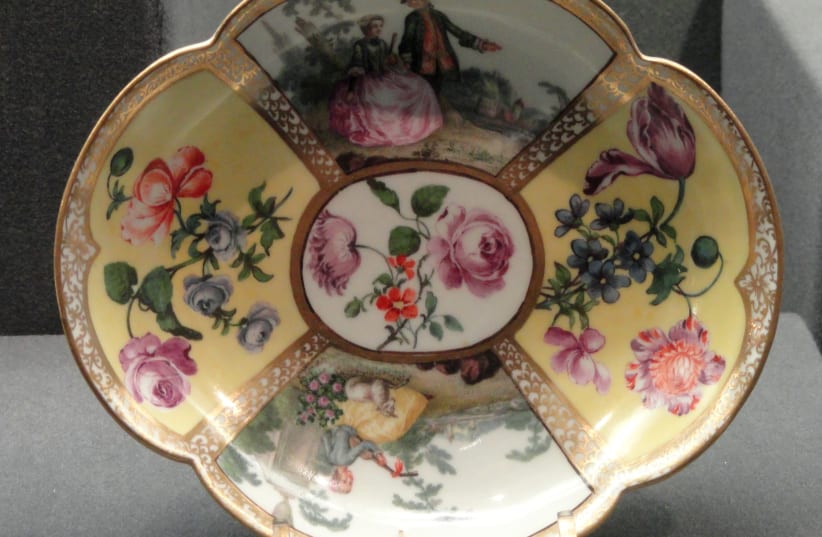A precious porcelain set with 435 pieces dating back to the 18th century was found to have been looted from its original Jewish owner by the Nazis and will be returned to his heirs, Dutch News reported on Wednesday.
The original owner was a Jewish banker named Herbert Gutmann who was forced to sell them to a German man during the Nazi regime. The set was then sold in parts in the 1970’s to the Het Loo palace, the Rijksmuseum and the Zuiderzeemuseum. Currently, 14 pieces had been discovered by Art detective Arthur Brand in the Hey Loo collection after he was hired by the heirs to discover what happened to the set. The heirs requested the objects be returned in 2015.
The formal decision to return the pieces was taken by the Dutch Ministry of Culture yet it is unclear at the moment if the family would insist on the physical return of the objects or might be content to leave them on display where they are safe. While the purchases which eventually landed the items in Dutch hands were legal, the Ministry of Culture decided that the original sale to the German man had been under duress.
The set was given by its manufacturer, Meissen porcelain, as a present to the last Stadtholder of the Dutch Republic William V, Prince of Orange. His son, also named William, was to become the first King of the Netherlands with the title of Stadholder [steward] being replaced by the Monarchy.
